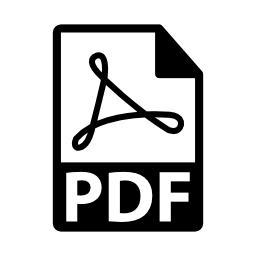April/May 2024 (vol. 20/6)
ContentsFeaturesNewsLegal
NewsResearch DigestResearch PlusCPD
 PERSONAL LEARNING ZONE
PERSONAL LEARNING ZONE
Summary:
FEATURED ARTICLE
This issue of Occupational Health [at Work] features a Personal Learning Zone (PLZ) article recommended for continuing professional development (CPD). The assignment questions, ‘Personal learning statement’ and ‘Certificate of engagement’ are available to subscribers at ohaw.co/AWPcpd. These will also be stored in your password-protected PLZ. The PLZ will help you document your own CPD.
Occupational health physicians and nurses, occupational hygienists and other professionals can use the resource in support of their specialism’s revalidation or CPD requirements.
Pages 22–26. Bradford score: is it still relevant? The Bradford score is an attendance management tool popular with many employers. However, it is not underpinned by evidence and can unduly penalise workers whose health condition makes them prone to spells of short term unpredictable sickness absence. This article advocates a more inclusive biopsychosocial approach to attendance management.
ADDITIONAL CPD
The following articles, news and research items are suggested reading for CPD and professional revalidation. Subscribers can complete their online Personal Learning Zone CPD record at ohaw.co/AWPcpd
Pages 4–5. A Delphi study has established a series of expert consensus statements on the causes, diagnosis and management of hand–arm vibration syndrome.
Pages 9–11. Although an employee with a stammer lost his reasonable adjustments claim, the EAT case of Glasson v The Insolvency Service highlights the importance of fully investigating the impact of a provision, criterion or practice on an individual with a disability and the steps required to avoid any substantial disadvantage.
Pages 18–21. Sexual harassment is common in many workplaces and can damage health. Our online poll finds that while many OH professionals say that individuals sometimes raise sexual harassment as a cause of their stress and/or poor mental health this is not a common consultation issue.
Pages 27–29. In exceptional circumstances, ‘secondary victims’ may claim damages if they can prove that they developed a psychiatric illness as a result of witnessing a traumatic injury or death, either at the time or in the immediate aftermath of an event caused by another party’s negligence.
Pages 30–34. Our compendium of recent research includes a UK study investigating the impact of individual-level workplace wellbeing interventions; a meta-analysis of research on the use of CBT-based interventions in reducing sickness absence and facilitating return to work; and two studies examining occupational factors associated with menstrual cycle irregularities.
Author: The At Work Partnership Ltd
Occupational Health at Work April/May 2024 (vol. 20/6) pp35



